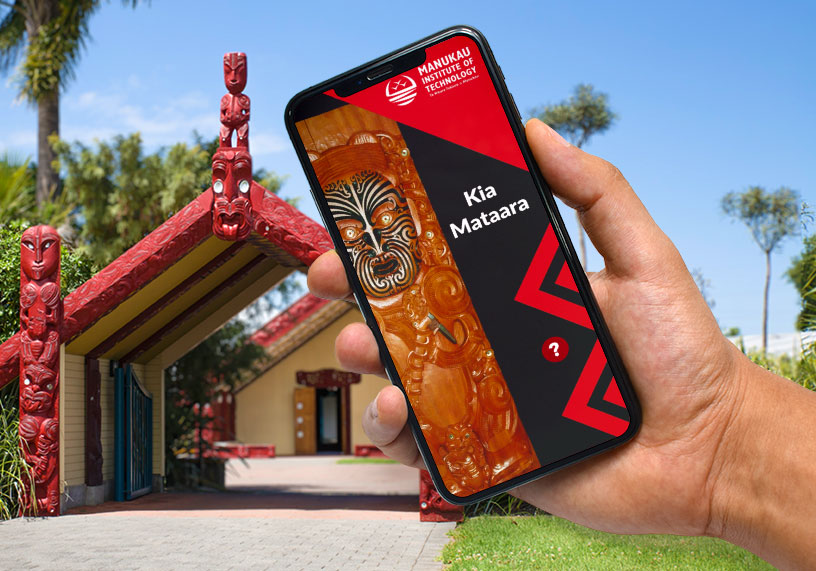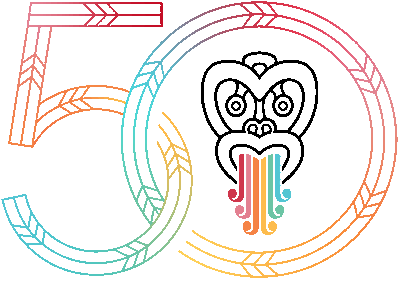Look at these great freebies provided by Te Taura Whiri i te Reo Māori (The Māori Language Commission). Visit their website for even more resources and inspiration.

Email signature banners
Show your support with the official MIT banners. Click on the image to view then right-click and choose 'Save as' to download.



Te Wiki o Te Reo Māori 2025
A full kit of posters, logos, Teams and Zoom backgrounds, social media profile icons, and more.
Get the kit

Festive occasions
Phrases to use on special days, holidays, and summertime.
Get your party on

Mahi
Posters and wallpapers to help you in the workplace.
Get the treats

The classroom
Posters for the classroom featuring action words.
Get schooled

Get the Kia Mataara app
Get our top te reo Māori resources in one easy app! Access pronunciation, waiata, karakia, meeting tips, email greetings and more—with audio in te reo and English. Download now to boost your reo journey!


Whakataukī (Māori proverbs) carry the heart and wisdom of Māori culture, offering inspiration and everyday reminders. These poetic sayings often reference Aotearoa’s unique symbols, historical events, and universal themes of compassion, community, and the environment.
Fun to learn, whakataukī are also key to mastering te reo Māori. With plenty to explore, from short and sweet to longer phrases, here are a few easy whakataukī to get you started.


Te anga karaka, te anga koura, kei kitea te Marae
The shells of the karaka berry, and the shells of the crayfish, should not be seen from the Marae
Although this clearly has a hygienic undertone, it also refers to discipline. A tribe or war party who disregards organization and has no concern for where they leave their rubbish and gear reflects poor leadership and discipline, thus becoming easy prey for a more regimented force.

Tangata ako ana i te whare, te tuuranga ki te marae, tau ana
A person who is taught at home, will stand collected on the Marae (meeting house grounds)
A child who is given proper values at home and cherished within his family, will not only behave well amongst the family but also within society and throughout his life.

He tangata takahi manuhiri, he marae puehu
A person who mistreats his guest has a dusty Marae (Meeting house)
Someone who disregards his visitors will soon find he has no visitors at all. This accentuates the importance of Manaakitanga, or hospitality within Māori society and culture.

Ka mate te kaainga tahi, ka ora te kaainga rua
When one house dies, a second lives
Historically used when two houses or families are merged due to the unfortunate circumstances of one particular family. However, this could be used when something good emerges from misfortune.

Kāore te kumara e kōrero mō tōna ake reka
The kumara (sweet potato) does not say how sweet he is
This proverb accentuates the value of humility.

Whāia te iti kahurangi ki te tūohu koe me he maunga teitei
Seek the treasure you value most dearly: if you bow your head, let it be to a lofty mountain
This whakataukī is about aiming high or for what is truly valuable, but its real message is to be persistent and not to let obstacles stop you from reaching your goal.

Get the Kia Mataara app
Get our top te reo Māori resources in one easy app! Access pronunciation, waiata, karakia, meeting tips, email greetings and more—with audio in te reo and English. Download now to boost your reo journey!


Boost your language skills using the Kupu o te ra – word of the day approach. Each day, pick up a new word or phrase that’s easy to use right away. It’s a laid-back way to build your vocabulary with practical, everyday language.
Click the button to whakarongo ki te kupu – hear the word on the Kupu Māori website.

Kai(nga)
Eat / Food
He kai pai te kūmara.
Kumara is good food. (Kumara is good/healthy food.)
Hear the kupu

Aihikirimi
Icecream
Kia nui rawa atu tāku aihikirimi!
Make my ice cream huge!
Hear the kupu

Hanawiti
Sandwich
He hanawiti reka tēnā.
That sandwich (you have/by you) is delicious.
Hear the kupu

Huarākau
Fruit
Ko te panana tāku tūmomo huarākau pai rawa.
Banana is my favourite type of fruit.
Hear the kupu

Reka
tasty, sweet, juicy, yummy
He tino reka te āporo!
The apple is yummy!
Hear the kupu

Get the Kia Mataara app
Get our top te reo Māori resources in one easy app! Access pronunciation, waiata, karakia, meeting tips, email greetings and more—with audio in te reo and English. Download now to boost your reo journey!


Besides being a powerful way to express feelings, waiata (songs) are also great for learning te reo Māori. The catchy tunes and repeating lyrics make language learning fun and memorable. Explore waiata to see how it can inspire, educate, and connect you with Māoritanga (Māori culture). These waiata are regularly performed on the marae and at gatherings:


Te Aroha
Te Aroha is a well-known waiata, all about love and peace


Tūtira mai ngā iwi
This is a classic waiata (song) that is taught at school in New Zealand and almost every New Zealander knows.
It calls for all peoples, regardless of race, creed, beliefs, or political stance, to stand as one.


Ngā Whakamoemiti
This is a waiata himene (hymn) giving praise and thanks and is suitable for both Marae and powhiri settings.


Mā Wai Rā
Originally composed as a waiata tangi, it is now used for many occasions, often as a welcome song performed by those hosting. It reminds us to put personal motives aside and to let truth, honesty and love guide our actions.


Ehara i te mea
This song embodies an old whakatauki,
'Te toto o te tangata he kai, te oranga o te tangata he whenua.'
'Food is the blood of the people, but the welfare of the people lies in the land.'
The land sustains our body, mind, and spirit. As descendants of Papatuanuku (Mother Earth), we don't just live on the land; we belong to it.


Ko te Whaea
A popular Māori Catholic hymn venerating Mary, the mother of Jesus, for accepting her role as mother of future generations. It is also sung at non-Catholic gatherings to praise the role of all mothers as "Whare tangata."

Get the Kia Mataara app
Get our top te reo Māori resources in one easy app! Access pronunciation, waiata, karakia, meeting tips, email greetings and more—with audio in te reo and English. Download now to boost your reo journey!


Kīwaha or slang are phrases you can amaze your friends, students, and family with. It’s a way to keep the language alive by using ancient phrases in a modern context.

Wāwau ana!
That’s cray cray!
Gen Z: that’s wild
Gen Alpha: that’s mad fam

Wehi nā!
OMG, that’s awesome!
Gen Z: that’s sick!
Gen Alpha: bet that’s lit

Aheiha!
Hard! That’s right!
Gen Z: Yasss!
Gen Alpha: fr fr

Wheo kē!
Buzzy!
Gen Z: That's lowkey intriguing
Gen Alpha: Lit

Me he tē!
Like a boss!
Gen Z: Like a Legend!
Gen Alpha: Sigma Alpha, no cap!

Mīharo!
Wonderful, marvellous, amazing!
Gen Z & Gen Alpha: lit!

Get the Kia Mataara app
Get our top te reo Māori resources in one easy app! Access pronunciation, waiata, karakia, meeting tips, email greetings and more—with audio in te reo and English. Download now to boost your reo journey!


Last year, our then Senior Leadership Team (SLT) shared their pepeha or korerō tuakiri as well as encouraging words about learning te reo.
Peseta Sam Lotu-Iiga
Tumu Whenua ā-Rohe 1 | Executive Director, Region 1
Toa Faneva
Tumu Whenua ā-Rohe 1 | Executive Director, Region 1
Simon Nash
DCE Learner Experience and Success
Chief Executive Management
Martin Carroll
DCE Academic
Chief Executive Management
Chris Park
General Manager Academic Services
Aiono Manu Fa'aea
Senior Pasifika Manager

Get the Kia Mataara app
Get our top te reo Māori resources in one easy app! Access pronunciation, waiata, karakia, meeting tips, email greetings and more—with audio in te reo and English. Download now to boost your reo journey!





















































